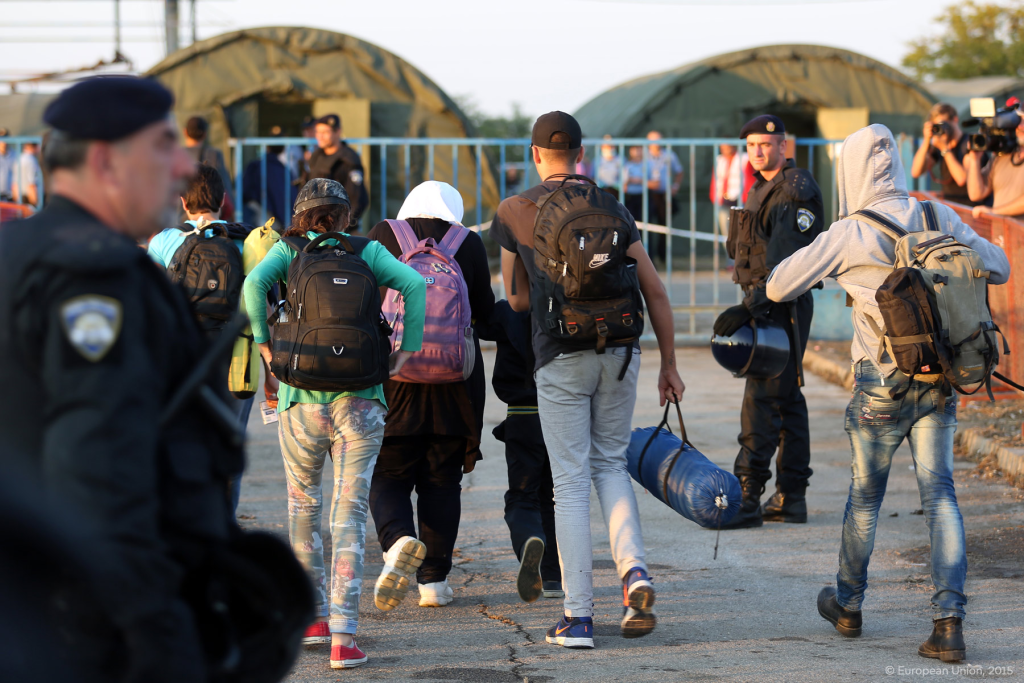
11 MEDIA ORGANIZATIONS SIGN SANTIAGO + 30 DECLARATION TO PROMOTE PRESS FREEDOM
Based on information published by the Asociación de Medios de Información (AMI), of Spain
30 years after the so-called Santiago Declaration was issued in Santiago de Chile, the Santiago + 30 Declaration has been signed during the seminar “The Development of the Media and Democracy in Latin America and the Caribbean”, which is being held in the Chilean capital from May 2 to 4 as part of the events to commemorate World Press Freedom Day.
Signed by executives of international and national journalism organizations and representatives of national associations of newspaper publishers from various Ibero-American nations, the Declaration makes a series of requests to states, intergovernmental organizations, technology and media companies and journalists to continue collaborating and promoting press freedom around the world, especially in Latin American and Caribbean countries, where they can help to promote more democratic and fairer societies.
The signatories of the Santiago + 30 Declaration are: World Association of News Publishers, WAN-IFRA; Inter American Press Association (IAPA); Associação Nacional de Jornais (ANJ-Brazil); Asociación de Entidades Periodísticas Argentinas (Adepa); Asociación Nacional de la Prensa (ANP-Chile); Asociación de Medios de Información (AMI-Spain); Asociación Colombiana de Medios de Información (AMI); Associação Portuguesa de Editores e Livreiros (APEL); Alianza de Medios Mx (Mexico); Consejo de la Prensa Peruana (CPP) and Asociación Ecuatoriana de Editores de Periódicos (Aedep).
Below, we reproduce in full the Santiago + 30 Declaration:
THE DECLARATION
“We, officers of international and national journalistic organizations; representatives of national associations of journalistic houses in various nations of Ibero-America; all participants in the events in commemoration of World Press Freedom Day of the United Nations Educational, Scientific and Cultural Organization (UNESCO), held in Santiago de Chile from May 2 to 4, 2024, as a follow-up to the seminar “Media Development and Democracy in Latin America and the Caribbean”, which adopted the Santiago Declaration 30 years ago in this same city, from May 2 to 6, 1994;
Considering Article 19 of the Universal Declaration of Human Rights, which establishes that “everyone has the right to freedom of opinion and expression; this right includes freedom to hold opinions without interference and to seek, receive and impart information and ideas through any media and regardless of frontiers; United Nations General Assembly Resolution 59 (I) of December 14, 1946, which affirms that freedom of information is a fundamental human right, and General Assembly Resolution 45/76 A of December 11, 1990, on information in the service of humanity;
Considering the values of the American Convention on Human Rights (Pact of San José, Costa Rica), the Declaration of Principles of Freedom of Expression of the Inter-American Commission on Human Rights (2000);
Considering Resolution 104 adopted by the General Conference of the United Nations Educational, Scientific and Cultural Organization (UNESCO) at its 25th session in 1989, which stresses in particular the promotion of “the free flow of ideas by word and image at the international and national levels”, as well as the Official Resolution adopted by the General Conference of UNESCO on 12 November 1997, which condemns the murders of journalists and demands that the authorities investigate, prevent and punish those responsible for the violence and make reparations for its consequences;
Considering resolution 48/133 adopted by the United Nations General Assembly on 20 December 1993, on the occasion of the International Year of Indigenous Peoples, and the Convention on the Elimination of All Forms of Discrimination against Women;
Considering the resolution adopted by the Organization of American States (OAS) at its General Assembly in Caracas, Venezuela, on June 2, 1998, on “Attacks against the exercise of freedom of the press and crimes against journalists”; the resolution adopted by the United Nations General Assembly on December 18, 2013, on “The Safety of Journalists and the Issue of Impunity”, and the Medellin Declaration adopted at the UNESCO Conference on “Press Freedom, Safety of Journalists and Impunity”, gathered in Colombia for the celebration of World Press Freedom Day on May 3-4, 2007;
Considering the principles of press freedom and freedom of expression emanating from the Declaration of Chapultepec (1994) and the Salta Declaration on Principles of Freedom of Expression in the Digital Age (2018),
Expressing our gratitude to the Government and people of Chile for their generous hospitality and for contributing to the success of the events in celebration of World Press Freedom Day 2024,
Expressing our gratitude to UNESCO for its initiative to celebrate World Press Freedom Day 2024 in Chile and for sustaining the UNESCO/Guillermo Cano Press Freedom Prize, which honors the memory of one of the most emblematic journalists of our region, a victim, twice over, of organized crime and impunity.
Confirming, as established in principle 1 of the 1994 Santiago Declaration, that “freedom of expression is the cornerstone of our democracies. Democracy is indispensable for peace and development within and among our countries. Freedom of the press is a key and indivisible part of freedom of expression”.
Convinced, as stated in principle 2 of the Santiago Declaration, that “all States of the region should be encouraged to grant constitutional guarantees of freedom of expression, freedom of the press for all types of media…”, and that principle 3 called for “respect for pluralism, cultural, linguistic and gender diversity, should be a fundamental factor in our democratic societies and should be reflected through all media”.
Considering that 30 years later, the conduct denounced in point 4 of the Declaration of Santiago in 1994 persists, regarding the existence of “repression, threats, aggressions, assassinations, arrests, imprisonments and kidnappings, criminal acts that in many cases go unpunished”.
Emphasizing that freedom of the press, independence and pluralism remain important objectives to guarantee information as a public good, a right that all humanity must enjoy in order to achieve the fulfillment of the human aspirations included in the Sustainable Development Goals of the 2030 Agenda,
Recognizing that in Spain, Portugal, Latin America and the Caribbean there is a vibrant, pluralistic and diverse ecosystem of highly developed traditional and digital media and that it is necessary to support their viability, as well as that of other low-resource media in rural areas and marginalized urban areas.
Aware that peace, development and democracy are closely linked and recognizing that the media in Spain, Portugal, Latin America and the Caribbean continue to play an essential role in favor of peace, democracy and the economic and social development of peoples,
We declare:
Now, as 30 years ago, the traditional values of journalism in society persist, but new opportunities and challenges have arisen as actors not yet globalized in 1994 emerged, notably the internet, which laid the groundwork for a dramatic transformation in the consumption of all types of content by the population, giving impetus to new information and communication technologies, large technology companies, social networks and artificial intelligence developers.
In this context, a collaborative effort involving governments, media, technology companies, intergovernmental organizations and civil society is necessary to continue promoting free expression as a fundamental human right and cornerstone of democratic and informed societies.
Therefore, we request:
To the States:
– Foster, through public policies based on international best practices, the existence of a free, independent and diverse media landscape that encompasses both traditional and digital platforms, enacting and enforcing laws and regulatory frameworks that protect and guarantee freedom of expression and press freedom in light of international human rights principles.
– Facilitate citizens’ access to quality information that allows them to make decisions of equal quality in their daily lives in the face of the use of misinformation, hate speech, discrimination, racism or incitement to violence, among other distortions already present in the digital ecosystem.
– Avoid the discourse and narratives of political polarization, which include the stigmatization of journalistic work in its democratic roles linked to the transmission of news, surveillance of elected officials, tolerance of dissenting opinions and consensus building.
– Protect journalists and media from threats, attacks and violence, addressing impunity for crimes against journalists and creating efficient working groups and protection systems to prevent, investigate and prosecute attacks and redress their consequences.
– Establish mechanisms and public policies to guarantee the free flow of information and unrestricted access to public information; bring civil (not criminal) defamation cases where criminal persecution of journalists still persists; discourage so-called strategic litigation against public participation (SLAPPs) that only seek to intimidate and silence critical voices, journalists and other civil actors, and deactivate regulations that maintain direct or indirect censorship against media and journalists.
– Support the sustainability of the media and independent journalism, as actors that favor the existence of a democratic regime and, in particular, of a public sphere in which the citizenry monitors matters of public interest, debates diverse ideas and builds consensus.
– Establish regulations that favor the free participation of citizens in the permanent innovations of the digital era, with the necessary tools to guarantee their participation in the community and ensure human rights.
– Encourage clear and transparent public policies in a market subject to asymmetric characteristics, so that there are conditions for dialogue and balanced negotiations between media and technology companies that distribute journalistic content.
– Promote media and digital literacy and critical thinking skills so that citizens can effectively navigate the digital scenario and distinguish reliable information from disinformation.
To intergovernmental organizations:
Continue to collaborate with professional organizations and research institutes on the current situation of the media, to make public policy recommendations to governments that encourage free, independent and pluralistic information channels.
– Support projects for the financing and economic sustainability of journalism and the media and for the creation of new media in rural and vulnerable areas, in order to avoid the expansion of the so-called “information deserts.
– Coordinate efforts to create training, protection and safety programs for journalists, as well as shelter and support for persecuted and exiled journalists.
– Encourage governments, digital platforms and media outlets to create media and digital literacy programs.
To technology companies:
Make their content moderation policies and decisions transparent, with clear and consistent guidelines that minimize the negative impact of harmful content and disinformation distribution, as well as use their artificial intelligence tools to detect and prevent unauthorized use of copyrighted material.
– Encourage the existence and deepening of collaborative models with the media, exploring new sustainable business models for the parties, combating disinformation and digital literacy of users, guaranteeing fair compensation for the news content they distribute, and respecting copyright and intellectual property laws.
Observe principles of competition in the advertising ecosystem and prevent commercial practices that harm the media and independent journalism.
– Establish transparency practices on personal data protection, privacy and, in particular, on the use of their algorithms that rank and recommend content and advertising, in order to avoid biases related to social polarization, race, gender and political perspectives, and give priority to original content creators.
To the media and journalism:
– Maintain independence in the face of political and commercial pressures, as well as resist censorship, self-censorship and undue influence. Uphold their commitment to the pursuit of truth, quality, transparency, public interest and reinforce their policies of inclusion of gender, race and community diversity in a democratic society.
– Create efficient safety protocols to provide journalists and their staff in general with tools for their physical, digital and emotional protection in situations of violence and in the coverage of crises and social conflicts.
– Practice quality journalism, which includes investigation, transparency and the search for solutions to social problems, as well as uphold ethical standards, disclose conflicts of interest, correct errors promptly and use efficient verification mechanisms to combat misinformation.
– Identify more tools for financial viability with sustainable and innovative business models; explore new sources of revenue; accelerate their digital transformation; and consider that robust local coverage journalism is essential for citizen participation and accountability of those who provide public service.
This Declaration reaffirms our commitment to a free press, vibrant public discourse and flourishing democratic societies in Ibero-America and the Caribbean.
Signatories:
World Association of News Publishers, WAN-IFRA; Inter American Press Association (IAPA); Associação Nacional de Jornais (ANJ-Brazil); Asociación de Entidades Periodísticas Argentinas (Adepa); Asociación Nacional de la Prensa (ANP-Chile); Asociación de Medios de Información (AMI-Spain); Asociación Colombiana de Medios de Información (AMI); Associação Portuguesa de Editores e Livreiros (APEL); Alianza de Medios Mx (Mexico); Consejo de la Prensa Peruana (CPP) and Asociación Ecuatoriana de Editores de Periódicos (Aedep).


